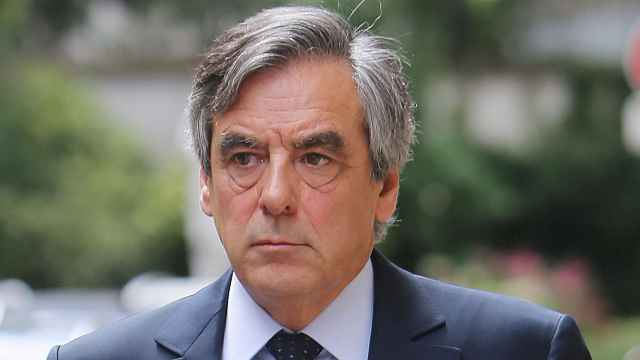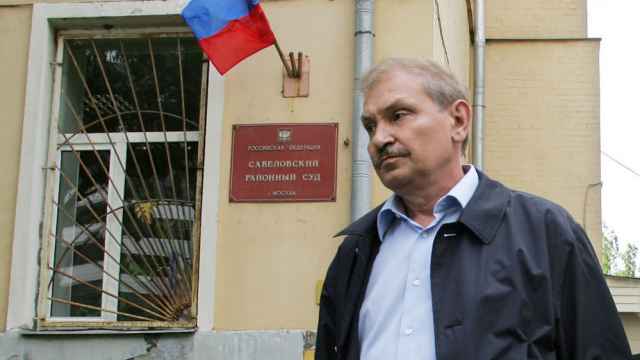For decades, Americans have been reluctant to label the billionaires bankrolling electoral campaigns as oligarchs. The term, it seemed, was better suited to Russia, conjuring up images of shadowy figures using corruption and criminality to build and protect commercial empires.
Yet megadonors such as Elon Musk, Peter Thiel, and David Sacks not only helped catapult Donald Trump to a second term, but are now taking over America’s government. It seems no longer possible to argue that the U.S. does not have its own set of oligarchs.
Just like their Russian counterparts from the 1990s, this new breed of American oligarchs wants to weaken political institutions and damage the ability of the government to regulate business. But unlike their Yeltsin-era predecessors, this “broligarchy” and their quest to remake the American state appears to enjoy far more popular support while carrying less reputational baggage.
Oligarchs generally refer to wealthy individuals who exert significant political influence. Throughout history, that strategic use of economic resources has been used to finance electoral campaigns and lobbying activities, buy laws and policy outcomes outright, or even acquire top political positions for oligarchs themselves or their proxies. In other words, a businessperson becomes an oligarch when they can bend national politics to their own self-interest.
Yet the ability of oligarchs to wield wealth and political power often depends on how they acquire assets in the first place. In the 1990s, Russian oligarchs such as Mikhail Khodorkovsky and Vladimir Potanin built their empires atop the wreckage of Soviet communism, supported by their political connections. Access to government officials helped them secure control over prized but undervalued state property through privatization, most notoriously through President Yeltsin’s “loans for shares” scheme in the run-up to the 1996 presidential elections. By June 2003, Russia’s top 10 oligarchic groups owned 60 percent of Russia’s stock market.
In that sense, Yeltsin-era oligarchs were born from the weaknesses of their country’s fledgling capitalist transition. This put the security of their property risks under indefinite question. So long as the general public believed that these individuals grew rich from corruption – and in turn used corruption to protect their stakes – the threat of nationalization and reversing the results of privatization would hang like a Sword of Damocles.
Some Russian oligarchs were preoccupied with atoning for the original sins of how they got rich. Generous philanthropy might help soothe growing public anger and launder reputations. Additionally, copying the West’s business practices and corporate governance standards might shift perceptions of their management prowess. If the Russian people could only see that oligarchs behaved honestly and charitably, then perhaps their fortunes were safe.
Yeltsin-era oligarchs also oversaw media empires that they could have theoretically used to repair their images. Boris Berezovsky controlled ORT (the precursor to Russia’s Channel One) and a number of key newspapers. As Russia’s “first and biggest media mogul,” Vladimir Gusinsky helped rescue Boris Yeltsin’s sputtering 1996 election campaign. But this urge to intervene in the most pivotal political events of the era drew even more public ire. For many oligarchs, their reputations had been so damaged by the villainy of privatization that it was better for them to reduce their public visibility, lest they provoke retaliation.
Upon taking power in 2000, President Vladimir Putin sensed these public vulnerabilities and deftly used blackmail to bring the Yeltsin-era oligarchs to heel. Those fearful of the new Putin regime abided by Putin’s mandate and removed themselves from politics altogether. Others like Khodorkovsky tested fate by continuing to organize politically and lost nearly everything in return. The 1990s oligarchic experiment gave way to Putin’s cronies, who took control over the commanding heights of the Russian economy.
American oligarchs are arriving into powerful government positions today with fewer political liabilities. Indeed, the origin stories of the billionaires grabbing Trump’s ear is in some ways reversed from those of Russia. Their fortunes have come from some of America’s most dynamic and innovative industries: tech, data, finance and the energy transition, among others. The American economy is also much more diversified than Russia’s was in the 1990s. Even with such jarring inequality, roughly half of the nation’s wealth is held by 750 billionaires, rather than 10.
Although America’s most politically active oligarchs are publicly feted as Ayn Rand-esque heroes of capitalism, the sadly hidden truth is that many also owe their rise to a helping hand from the U.S. government. Elon Musk takes the cake, as two of his shiny stars – Tesla and SpaceX – benefit from massive tax credits, subsidized loans, and government contracts. Palantir – founded by Peter Thiel – received early-stage investments from the CIA and now boasts hundreds of millions of dollars in revenue from state procurement.
But American oligarchs’ skillful manipulation, and now ownership, of new media has helped obscure this nexus between their wealth and government largesse. Billionaires dominate the podcast waves griping about how government has got in the way of their businesses, despite its help advancing them. Trump himself has tried to portray his battles with the federal government as a political asset with voters, as only he possesses the ability to save the US from the deep state. And Musk has used X to position himself as a champion of free speech and a bulwark against government overreach in society.
This propagandizing may be having an effect. Just a decade removed from Occupy Wall Street, public opinion in the U.S. about billionaires and the American dream has splintered. On one hand, Americans want the wealthy to pay more taxes and corporations to stay out of politics.
But on the other, Americans appear to have bought into some of the heroic tales of tech entrepreneurs rescuing the American economy. Majorities of Americans believe that technology companies have a positive effect on society and prefer a government providing fewer services and aid to the poor.
All of this is fertile ground for American oligarchs to achieve the same ultimate goal as Yeltsin-era oligarchs: undermining the political institutions and regulations that curb their companies’ profitability and market dominance. Smaller, less resourced governments almost by definition cede power to corporations, and by extension the owners that control them.
Thus, the combination of mass media appeal and popularly resonant policy proposals put America’s oligarchs in a much stronger starting position to weaken America’s democracy. For now, the stigma of ill-gotten wealth is still absent.
However, Russia’s Yeltsin-era oligarchs could not be in a more different political position today. Short on resources and trying to shore up elite support, the Putin regime is aggressively revisiting the privatization practices and has nationalized over $15 billion in private companies since 2022. The original sins of 1990s-era wealth acquisition still haunt the country. Americans should pay attention and guard against the undermining of their own system.
A Message from The Moscow Times:
Dear readers,
We are facing unprecedented challenges. Russia's Prosecutor General's Office has designated The Moscow Times as an "undesirable" organization, criminalizing our work and putting our staff at risk of prosecution. This follows our earlier unjust labeling as a "foreign agent."
These actions are direct attempts to silence independent journalism in Russia. The authorities claim our work "discredits the decisions of the Russian leadership." We see things differently: we strive to provide accurate, unbiased reporting on Russia.
We, the journalists of The Moscow Times, refuse to be silenced. But to continue our work, we need your help.
Your support, no matter how small, makes a world of difference. If you can, please support us monthly starting from just $2. It's quick to set up, and every contribution makes a significant impact.
By supporting The Moscow Times, you're defending open, independent journalism in the face of repression. Thank you for standing with us.
Remind me later.








